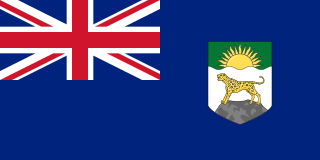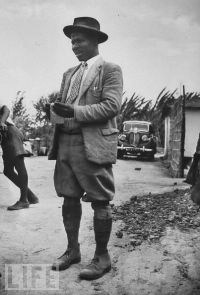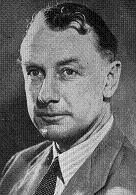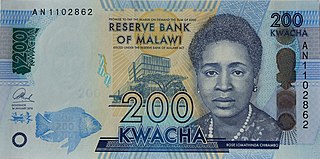Related Research Articles

Nyasaland was a British protectorate located in Africa that was established in 1907 when the former British Central Africa Protectorate changed its name. Between 1953 and 1963,Nyasaland was part of the Federation of Rhodesia and Nyasaland. After the Federation was dissolved,Nyasaland became independent from Britain on 6 July 1964 and was renamed Malawi.
This page list topics related to Malawi.

The Malawi Congress Party (MCP) is a political party in Malawi. It was formed as a successor party to the banned Nyasaland African Congress when the country,then known as Nyasaland,was under British rule. The MCP,under Hastings Banda,presided over Malawian independence in 1964,and from 1966 to 1993 was the only legal party in the country. It has continued to be a major force in the country since losing power.
The Nyasaland African Congress (NAC) was an organisation that evolved into a political party in Nyasaland during the colonial period. The NAC was suppressed in 1959,but was succeeded in 1960 by the Malawi Congress Party,which went to on decisively win the first universal suffrage elections in 1961,and to lead the country to independence as Malawi in 1964.
Dunduzu Kaluli Chisiza(8 August 1930 –2 September 1962),also known as Gladstone Chisiza,was an African nationalist who was active in the independence movements in Rhodesia and Nyasaland,respectively present-day Zimbabwe and Malawi.
Henry Masauko Blasius Chipembere was a Malawian nationalist politician who played a significant role in bringing independence from colonial rule to his native country,formerly known as Nyasaland. From an early age Chipembere was a strong believer in natural justice and,on his return in 1954 from university in South Africa,he joined his country's independence struggle as a nationalist strategist and spokesman. In 1957,considering that the independence movement need such a strong leader similar to Kwame Nkrumah,and considering himself too young for this task,he joined with other young nationalists in inviting Hastings Kamuzu Banda to return to Nyasaland as the movement's leader.
Orton Chirwa was a lawyer and political leader in colonial Nyasaland and after independence became Malawi's Minister of Justice and Attorney General. After a dispute with Malawi's autocratic President Hastings Kamuzu Banda,he and his wife Vera were exiled. After being kidnapped abroad they were tried in Malawi on charges of treason and sentenced to death. Amnesty International named the couple prisoners of conscience. After spending nearly eleven years on death row in Malawi,Orton Chirwa died in prison on 20 October 1992.

James Frederick Sangala was a founding member of the Nyasaland African Congress during the period of British colonial rule. Sangala was given the nickname "Pyagusi",which means "one who perseveres".
James Ralph Nthinda Chinyama was a leading member of the Nyasaland African Congress (NAC) during the period of British colonial rule in Nyasaland,which became the independent state of Malawi in 1964.
Levi Zililo Mumba was a leading local politician and the first President of the Nyasaland African Congress (NAC) during the period of British colonial rule in Nyasaland,which became the independent state of Malawi in 1964. Mumba was probably the most important figure in the development of Malawi politics between World War I and World War II.
Thamar Dillon Thomas Banda ("TDT") was a politician in Nyasaland in the years prior to independence. He was President-General of the Nyasaland African Congress (NAC) from 1957 to 1958,and founded the Congress Liberation Party in 1959.

Sir Robert Perceval Armitage was a British colonial administrator who held senior positions in Kenya and the Gold Coast,and was Governor of Cyprus and then of Nyasaland during the period when the former British colonies were gaining independence.

Rose Lomathinda Chibambo was a prominent politician in the British Protectorate of Nyasaland in the years leading up to independence as the state of Malawi in 1964,and immediately after.

Sir Geoffrey Francis Taylor Colby was a British colonial administrator who was Governor of the protectorate of Nyasaland between 1948 and 1956. He fought unsuccessfully against creation of the Federation of Rhodesia and Nyasaland.
Sir Edmund Charles Smith Richards (1889-1955) was a British colonial administrator who was Resident Commissioner of Basutoland from 1935 to 1942 and Governor of Nyasaland from 1942 to 1947.

General elections were held for the first time in Nyasaland on 15 March 1956.
The Devlin Commission,officially the Nyasaland Commission of Inquiry,was a Commission of Inquiry set up in 1959 under the chairmanship of Mr.Justice Devlin,later Lord Devlin,after African opposition to the Federation of Rhodesia and Nyasaland,particularly its farming and rural conservation policies,and demands for progress towards majority rule promoted by the Nyasaland African Congress under its leader Dr Hastings Banda led to widespread disturbances in Nyasaland and some deaths. A state of emergency was declared in March 1959;about 1,300 people,many of whom were members of the Nyasaland African Congress party,were detained without trial,over were 2,000 imprisoned for offences related to the emergency and the Congress itself was banned. During the State of Emergency and the week preceding it,a total of 51 people were killed by troops or the police. Although the four members of the Commission were members of The British Establishment,its findings were highly unfavourable to the Nyasaland Government.

The cabinet crisis of 1964 in Malawi occurred in August and September 1964 shortly after independence when,after an unresolved confrontation between the Prime Minister,Hastings Banda and the cabinet ministers present on 26 August 1964,three ministers and a parliamentary secretary were dismissed on 7 September. These dismissals were followed by the resignations of three more cabinet ministers and another parliamentary secretary,in sympathy with those dismissed. Initially,this only left the President and one other minister in post,although one of those who had resigned rescinded his resignation within a few hours. The reasons that the ex-ministers put forward for the confrontation and subsequent resignations were the autocratic attitude of Banda,who failed to consult other ministers and kept power in his own hands,his insistence on maintaining diplomatic relations with South Africa and Portugal and a number of domestic austerity measures. It is unclear whether the former ministers intended to remove Banda entirely,to reduce his role to that of a non-executive figurehead or simply to force him to recognise collective cabinet responsibility. Banda seized the initiative,firstly,by dismissing some of the dissidents rather than negotiating,and secondly,by holding a debate on a motion of confidence on 8 and 9 September 1964. As the result of the debate was an overwhelming vote of confidence,Banda declined to reinstate any of the ministers or offer them any other posts,despite the urging of the Governor-General to compromise. After some unrest,and clashes between supporters of the ex-ministers and of Banda,most of the former left Malawi in October with their families and leading supporters,for Zambia or Tanzania. One ex-minister,Henry Chipembere went into hiding inside Malawi and,in February 1965 led a small,unsuccessful armed uprising. After its failure,he was able to arrange for his transfer to the USA. Another ex-minister,Yatuta Chisiza,organised an even smaller incursion from Mozambique in 1967,in which he was killed. Several of the former ministers died in exile or,in the case of Orton Chirwa in a Malawian jail,but some survived to return to Malawi after Banda was deposed and to return to public life.
Augustine Bwanausi was born in Malawi,then called Nyasaland,in 1930 and trained as a science teacher,but was also politically active in the Nyasaland African Congress,campaigning for the end of colonial rule. In March 1959,a State of Emergency was declared,and Bwanausi was arrested as a leading Congress member and detained until 1960. On his release,he joined the Malawi Congress Party and in 1961 was elected to the Legislative Council,becoming Minister of Internal Affairs and Development in the same year. In 1963,he became Minister of Works. In 1964,there was a confrontation between Banda and most of his ministers,which led to the sacking of Bwanausi and two of his cabinet colleagues in September 1964. Three other cabinet ministers resigned in sympathy,and although Banda was willingness to re-instate Bwanausi and one or two other ministers,their insistence on all be reinstated ended any hope of a reconciliation. In October 1964,Bwanausi left Malawi for Zambia,where he resumed teaching,and was active in Malawian exile politics until his death in a car accident in 1973.
The Nyasaland Emergency 1959 was a state of emergency in the protectorate of Nyasaland,which was declared by its governor,Sir Robert Armitage on 3 March 1959 and which ended on 16 June 1960. Under the emergency powers that operated during the Emergency,over 1,300 members or supporters of the Nyasaland African Congress (Congress) were detained without trial,and most of the party's leaders including its president,Dr. Hastings Banda,were imprisoned in Southern Rhodesia after being arrested on 3 March. Many other Africans were jailed for offences related to the Emergency,including rioting and criminal damage. In the week before the Emergency was declared and during its first month,over 50 Africans were killed and many more wounded by the colonial security forces,which included many European troops from Southern Rhodesia. Others were beaten by troops or armed police or had their huts destroyed and their property seized during punitive operations undertaken during the Emergency.
References
- 1 2 Ross 2009, pp. 65.
- 1 2 Drewett & Cloonan 2006, pp. 120.
- 1 2 Power 2010, pp. 46–47.
- 1 2 Ross 2009, pp. 43.
- ↑ Okoth 2006, pp. 117.
- ↑ Rotberg 1965.
- ↑ Anene 1966, pp. 521.
- ↑ Power 2010, pp. 51.
- ↑ Ross 2009, pp. 63.
- 1 2 Ross 2009, pp. 67.
- ↑ Lamba 2010, pp. 74.
- ↑ Ross 2009, pp. 68.
- 1 2 Ross 2009, pp. 69.
- ↑ Lamba 2010, pp. 174.
- ↑ Baker 1998, pp. 211.
- ↑ Power 2010, pp. 180.
- ↑ Lamba 2010, pp. 277.
- ↑ Lamba 2010, pp. 377.
Sources
- Anene, Joseph C. (1966). Africa in the nineteenth and twentieth centuries: a handbook for teachers and students . Ibadan U.P. p. 521.
- Baker, Colin A. (1998). Retreat from Empire: Sir Robert Armitage in Africa and Cyprus. I.B.Tauris. ISBN 1-86064-223-3.
- Drewett, Michael; Cloonan, Martin (2006). Popular music censorship in Africa. Ashgate Publishing, Ltd. ISBN 0-7546-5291-2.
- Lamba, Isaac Chikwekwere (2010). Contradictions in Post-War Education Policy Formation and Application in Colonial Malawi 1945-1961. African Books Collective. ISBN 978-99908-87-94-5.
- Okoth, Assa (2006). A History of Africa: African nationalism and the de-colonisation process. East African Publishers. ISBN 9966-25-358-0.
- Power, Joey (2010). Political culture and nationalism in Malawi: building Kwacha. University Rochester Press. ISBN 978-1-58046-310-2.
- Ross, Andrew C. (2009). Colonialism to cabinet crisis: a political history of Malawi. African Books Collective. ISBN 978-99908-87-75-4.
- Rotberg, Robert I. (1965). The rise of nationalism in Central Africa: the making of Malawi and Zambia, 1873-1964 . Harvard University Press. p. 194. ISBN 0-674-77191-5.